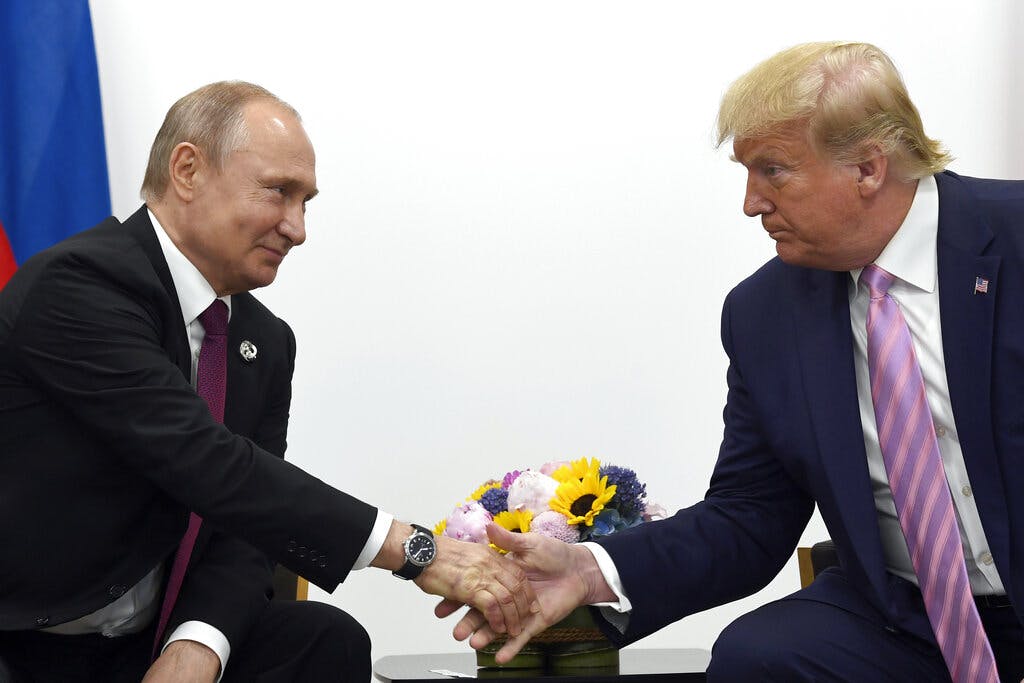
Fani Willis Comes Under Fire as Georgia’s GOP Lawmakers Plan Sweeping Restrictions Following Her Failed Prosecution of Trump
By A.R. HOFFMAN
|As the ruble jumps 7 percent on news of the leaders’ phone call, Russian officials revel in their belief that Trump will try to end the 3-year-old war in a one-on-one summit with Putin — without Ukraine or Europe at the table.

Already have a subscription? Sign in to continue reading

By A.R. HOFFMAN
|
By LUKE FUNK
|
$0.01/day for 60 days
Cancel anytime
By continuing you agree to our Privacy Policy and Terms of Service.
By NOVI ZHUKOVSKY